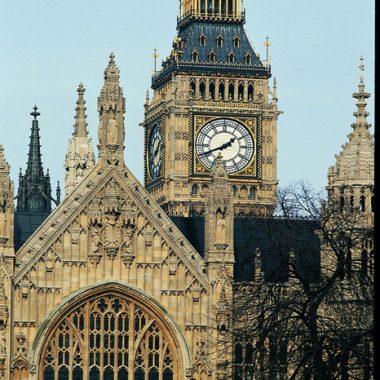MPs are going to be discussing the failures of GP support services in a parliamentary debate scheduled for next week.
The adjournment debate will be held in Westminster Hall next Tuesday (8 November) with the subject ‘delivery of Capita’s Primary Care Support Services contract’.
It has been secured by Coventry North West MP Geoffrey Robinson, who is calling for GPs to be compensated for the upheaval stemming from the £1bn outsourcing contract.
The GPC, which has passed a vote of no confidence in Capita, welcomed the news as ‘a vital opportunity to raise these concerns so that urgent action can be taken’.
The debate comes as Pulse and GPC have raised problems faced by practices including delayed patient record transfers, delayed GP payments, problems with clinical material supplies and issues with new GPs joining the performers list.
A petition for a parliamentary enquiry into the failings and its effect on GP practices has gathered thousands of signatures and NHS England officials recently admitted the disruption is putting patients ‘at risk’.
NHS England outsourced primary care support services to Capita in September last year as part of a move to a national service that would be 40% cheaper than the combined cost of previous services that were delivered on a local basis.
Geoffrey Robinson MP said the issues faced by GPs ‘raises a question about how officials at NHS England considered it possible that Capita could save 40% in the first year, transform services for GPs and make a profit – all concurrently’.
He said: ‘I believe GP practices should be compensated for the disruption, as problems have continued despite various assurances they were being addressed. Why should GP practices be missing thousands of pounds in payments following the outsourcing of a national primary care support service?”
‘Clearly this mismanagement presents a significant risk to the care provided to patients, and it is the elderly, needing regular attention for often chronic conditions, who are most affected.’
He added that NHS England ‘made this change to a reliable and trusted NHS service with the explicit intent of making significant financial savings through the use of a commercial provider’, with the result being ‘an unacceptable transfer of unfunded work on to already hard-pressed practices’.
He said: ‘Therefore every practice should receive recurrent recompense for the extra workload related to the new Capita services, in addition to compensation for increased workload and inconvenience caused by the unsatisfactory introduction of these services…
‘The Secretary of State should intervene directly, as this is extremely dangerous, the longer this is allowed to continue, as medical records are not being delivered at all, or delivered late or delivered to the wrong practices.’
GPC deputy chair Dr Richard Vautrey said that the ‘mistakes’ of Capita ‘are directly impacting on the ability of many GPs to provide safe, effective care to their patients in the area’.
‘They are in some cases being left without the essential information they need to know about a new patient and the tools to treat them,’ he warned.
He added: ‘NHS England is ultimately responsible for the chaos caused by trying to cut the cost of this essential service for practices by privatising it and we can now all too clearly see the result, with practices picking up the workload and patients suffering as a result.
‘The BMA has written to NHS England expressing grave concern about this state of affairs and received an apology for these failures. But we need urgent action to correct these shortcomings before patient care is further compromised.’
Primary care support failures
GP practices have been experiencing significant disruption since the contract was first awarded to Capita and local support service offices began to be rolled up.
Major changes came in in April this year, and practices immediately felt the disruption as they were left without prescription pads and began building up huge stockpiles of uncollected patient notes.
Capita has taken measures to improve collections but practices are still dealing with the fallout from the initial backlog, which Pulse has revealed was down to a major underestimation of the work entailed when NHS England awarded the contract.
This has meant one practice was reported to the Information Commissioners Office when it couldn’t provide undelivered medical records for a court case, and patients have missed out on jobs.
Other problems have occurred from Capita’s takeover of payments and registration to the performers list, despite changes to these services not being planned until 2017.
Practices have consistently reported that the lack of responsiveness from Capita helplines has compounded these issues.
Capita ran a survey of GPs in August, which revealed satisfaction with services had slumped to just 21%.
This came after the GPC had condemned the ’systematic failure’ of Capita’s overhaul of services including the movement of patients’ records, ordering of clinical supplies, and the management of pensions, payments and the performers list.
Pulse July survey
Take our July 2025 survey to potentially win £1.000 worth of tokens












